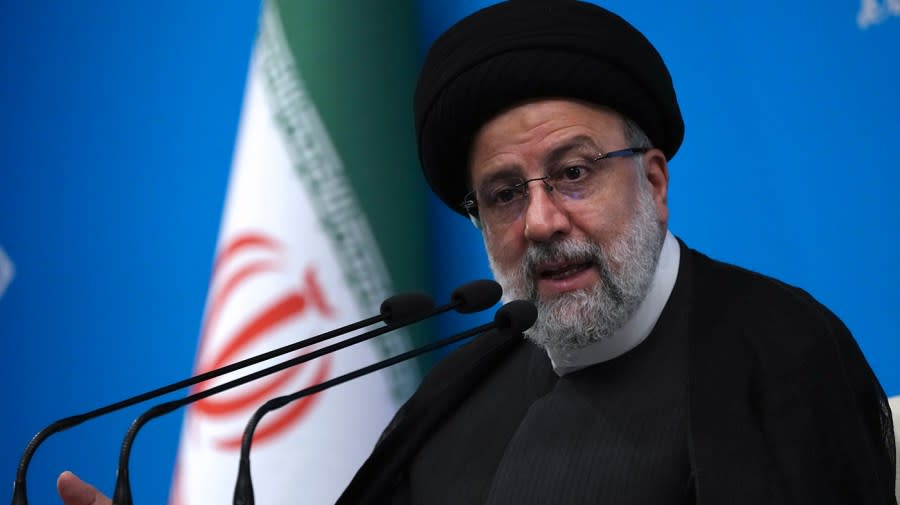Who is Ebrahim Raisi, the missing president of Iran?

The condition of Iranian President Ebrahim Raisi remains unknown Sunday after his helicopter crashed in the rural and mountainous border region between Iran and western Azerbaijan.
Iranian state media IRINN reported that the crash site had not yet been located as of about 1 a.m. local time Monday morning, about 12 hours after the crash, as nightfall combines with heavy fog and rough weather to make the search-and-rescue effort difficult.
Raisi had met with Azeri President Ilham Aliyev at the border earlier Sunday on a diplomatic trip.
Now the focus of a national emergency search effort, who is the missing Iranian president?
Legal career and political connections
Coming from a notable family in the major city of Mashhad, Raisi quickly moved into the legal profession after finishing his education in the 1980s. He was named the deputy prosecutor for Tehran, and quickly rose through the ranks, becoming an ally of Ayatollah Ruhollah Khomeini.
Khomeini named Raisi one of four leaders of mass political executions in 1988, considered the country’s greatest purge of political enemies. Estimates of the total number of political prisoners executed varies from about 3,000 to up to 30,000 people.
Raisi then continued his rise, becoming Tehran’s chief prosecutor and later the head of the country’s General Inspection Office in the 1990s.
After the death of Khomeini and the ascension of Ayatollah Ali Khamenei, Raisi positioned himself as a close ally to the new supreme leader. That alliance saw him named Iran’s attorney general in 2014.
Presidential ambitions
Taking advantage of his national platform from his role as attorney general, Raisi launched an underdog race for the presidency against former President Hassan Rouhani in 2017. Seen by his supporters as an anticorruption candidate, conservative hard-liner and close follower of the popular Khamenei, he quickly gained momentum in the race but fell short at the ballot box.
Raisi placed second in the election with about 38 percent of vote. He later alleged that the election may have been rigged against him.
After the 2017 election failure, Raisi was named the chief justice of Iran in 2019, the highest legal office in the country. He kept the role until running for president again in 2021.
Raisi won his second election for the presidency, though outside observers have theorized that Khamenei may have rigged the election in favor of his ally. Viewed as a favorite to succeed Khamenei as supreme leader, the presidency is largely viewed as a prerequisite role.
Relations with the U.S. and tenure
In his inauguration speech in 2021, Raisi said he would attempt to lift the sanctions placed on Iran by the U.S., signaling support for the past nuclear control treaties. He also gave assurances that the country’s nuclear program was only peaceful, and not related to weapons production.
In foreign policy, Raisi backed the Taliban government of Afghanistan following the American withdrawal from the country, and he has supported Russia in its invasion of Ukraine.
Raisi’s presidency was shaken last year by mass civil unrest in protest of Mahsa Amini’s death, a young woman who was allegedly killed by the country’s morality police.
Since the onset of the Israel-Hamas war, the Iranian government has consistently denounced Israel and launched a mass missile strike on the country last month, in response to an Israeli strike on its diplomatic complex in Syria.
For the latest news, weather, sports, and streaming video, head to The Hill.

 Yahoo News
Yahoo News 
